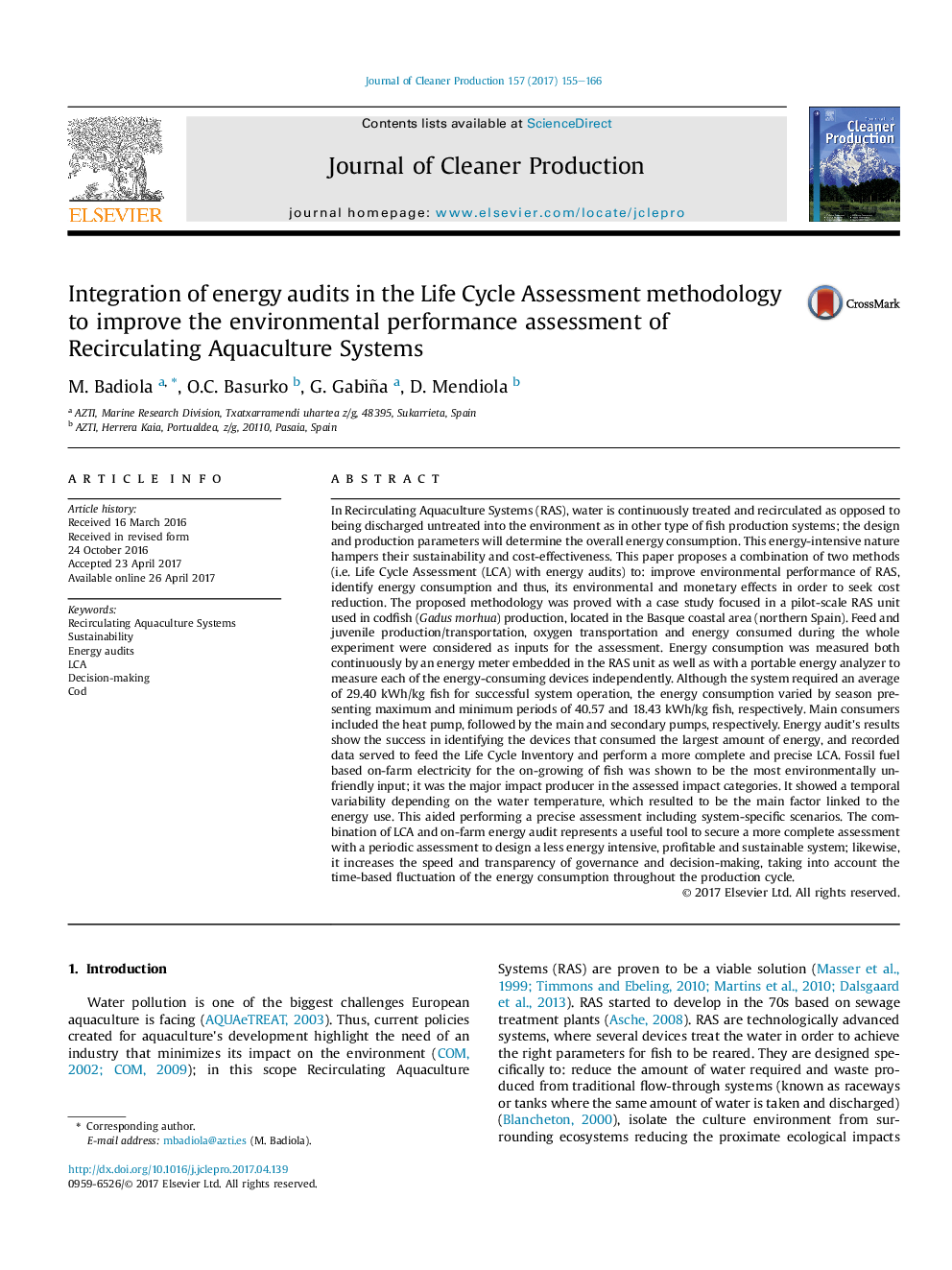| Article ID | Journal | Published Year | Pages | File Type |
|---|---|---|---|---|
| 5481173 | Journal of Cleaner Production | 2017 | 12 Pages |
Abstract
In Recirculating Aquaculture Systems (RAS), water is continuously treated and recirculated as opposed to being discharged untreated into the environment as in other type of fish production systems; the design and production parameters will determine the overall energy consumption. This energy-intensive nature hampers their sustainability and cost-effectiveness. This paper proposes a combination of two methods (i.e. Life Cycle Assessment (LCA) with energy audits) to: improve environmental performance of RAS, identify energy consumption and thus, its environmental and monetary effects in order to seek cost reduction. The proposed methodology was proved with a case study focused in a pilot-scale RAS unit used in codfish (Gadus morhua) production, located in the Basque coastal area (northern Spain). Feed and juvenile production/transportation, oxygen transportation and energy consumed during the whole experiment were considered as inputs for the assessment. Energy consumption was measured both continuously by an energy meter embedded in the RAS unit as well as with a portable energy analyzer to measure each of the energy-consuming devices independently. Although the system required an average of 29.40Â kWh/kg fish for successful system operation, the energy consumption varied by season presenting maximum and minimum periods of 40.57 and 18.43Â kWh/kg fish, respectively. Main consumers included the heat pump, followed by the main and secondary pumps, respectively. Energy audit's results show the success in identifying the devices that consumed the largest amount of energy, and recorded data served to feed the Life Cycle Inventory and perform a more complete and precise LCA. Fossil fuel based on-farm electricity for the on-growing of fish was shown to be the most environmentally unfriendly input; it was the major impact producer in the assessed impact categories. It showed a temporal variability depending on the water temperature, which resulted to be the main factor linked to the energy use. This aided performing a precise assessment including system-specific scenarios. The combination of LCA and on-farm energy audit represents a useful tool to secure a more complete assessment with a periodic assessment to design a less energy intensive, profitable and sustainable system; likewise, it increases the speed and transparency of governance and decision-making, taking into account the time-based fluctuation of the energy consumption throughout the production cycle.
Related Topics
Physical Sciences and Engineering
Energy
Renewable Energy, Sustainability and the Environment
Authors
M. Badiola, O.C. Basurko, G. Gabiña, D. Mendiola,
